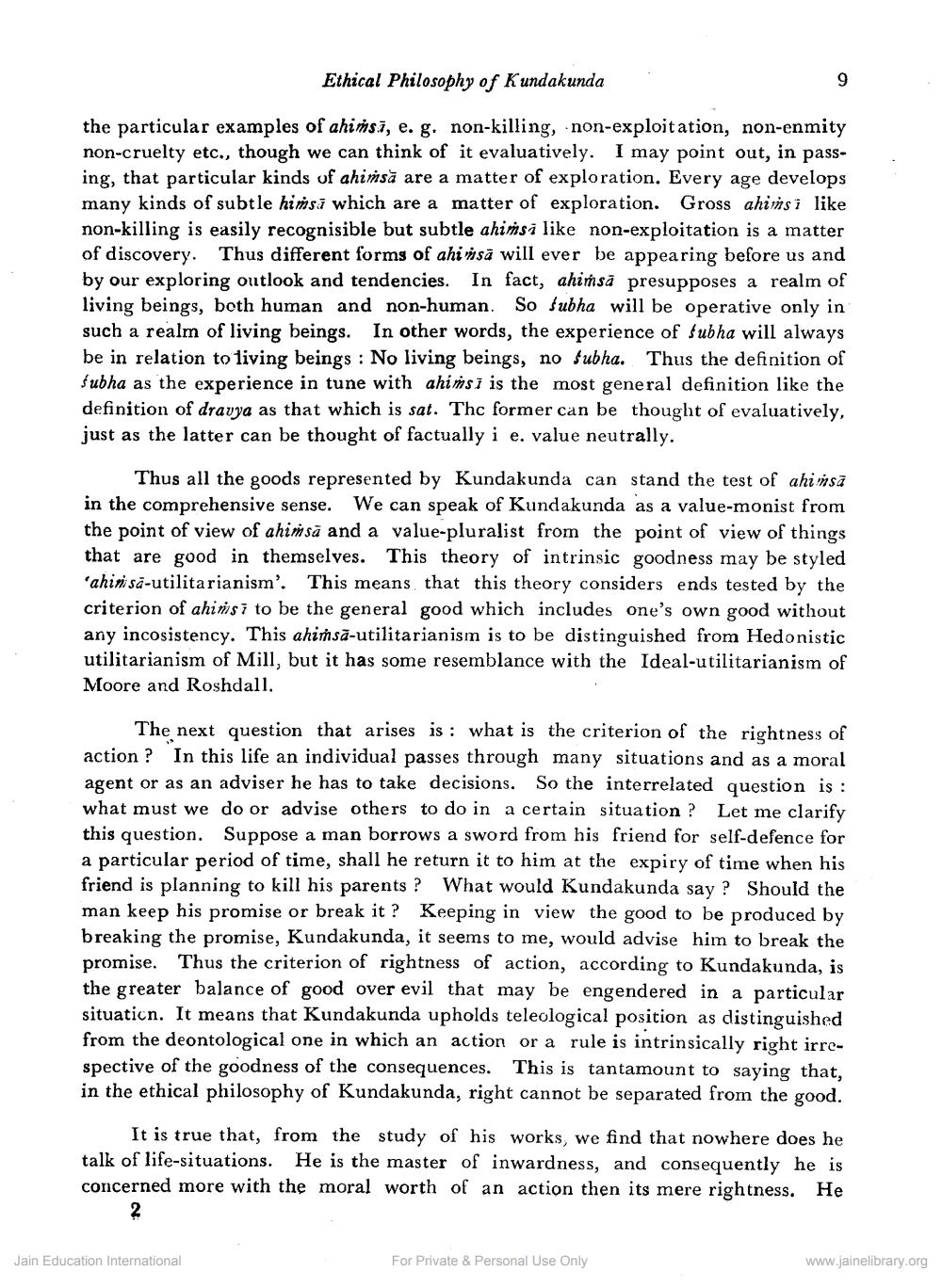________________
Ethical Philosophy of Kundakunda
the particular examples of ahimsi, e. g. non-killing, non-exploitation, non-enmity non-cruelty etc., though we can think of it evaluatively. I may point out, in passing, that particular kinds of ahimsă are a matter of exploration. Every age develops many kinds of subtle himsi which are a matter of exploration. Gross ahirns i like non-killing is easily recognisible but subtle ahimsi like non-exploitation is a matter of discovery. Thus different forms of ahimsā will ever be appearing before us and by our exploring outlook and tendencies. In fact, ahimsă presupposes a realm of living beings, both human and non-human. So śubha will be operative only in such a realm of living beings. In other words, the experience of $ubha will always be in relation to living beings : No living beings, no Subha. Thus the definition of śubha as the experience in tune with ahimsi is the most general definition like the definition of dravya as that which is sat. The former can be thought of evaluatively, just as the latter can be thought of factually i e. value neutrally.
Thus all the goods represented by Kundakunda can stand the test of ahimsā in the comprehensive sense. We can speak of Kundakunda as a value-monist from the point of view of ahimsă and a value-pluralist from the point of view of things that are good in themselves. This theory of intrinsic goodness may be styled 'ahini să-utilitarianism'. This means that this theory considers ends tested by the criterion of ahins i to be the general good which includes one's own good without any incosistency. This ahińsă-utilitarianism is to be distinguished from Hedonistic utilitarianism of Mill, but it has some resemblance with the Ideal-utilitarianism of Moore and Roshdall.
The next question that arises is : what is the criterion of the rightness of action? In this life an individual passes through many situations and as a moral agent or as an adviser he has to take decisions. So the interrelated question is : what must we do or advise others to do in a certain situation ? Let me clarify this question. Suppose a man borrows a sword from his friend for self-defence for a particular period of time, shall he return it to him at the expiry of time when his friend is planning to kill his parents ? What would Kundakunda say? Should the man keep his promise or break it ? Keeping in view the good to be produced by breaking the promise, Kundakunda, it seems to me, would advise him to break the promise. Thus the criterion of rightness of action, according to Kundakunda, is the greater balance of good over evil that may be engendered in a particular situaticn. It means that Kundakunda upholds teleological position as distinguished from the deontological one in which an action or a rule is intrinsically right irrespective of the goodness of the consequences. This is tantamount to saying that, in the ethical philosophy of Kundakunda, right cannot be separated from the good.
It is true that, from the study of his works, we find that nowhere does he talk of life-situations. He is the master of inwardness, and consequently he is concerned more with the moral worth of an action then its mere rightness. He
Jain Education International
For Private & Personal Use Only
www.jainelibrary.org




